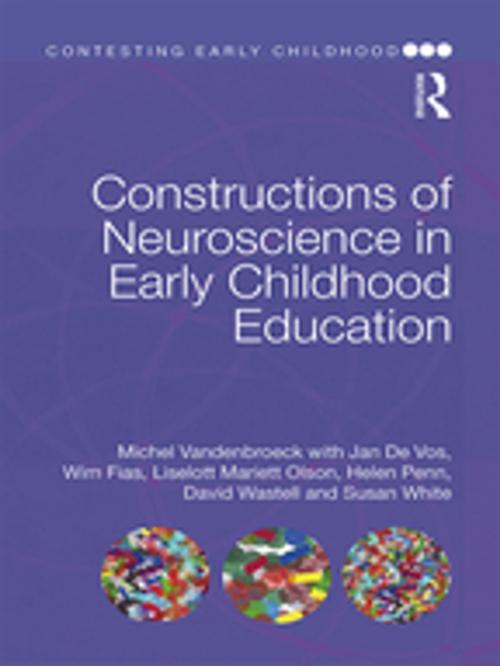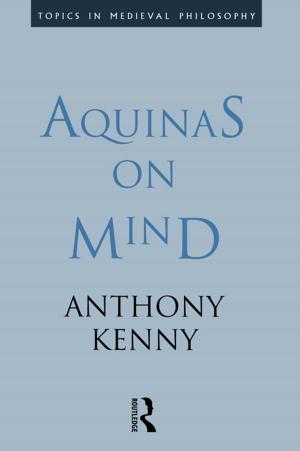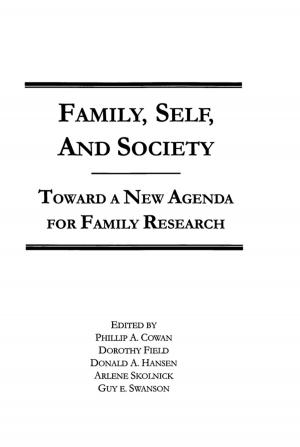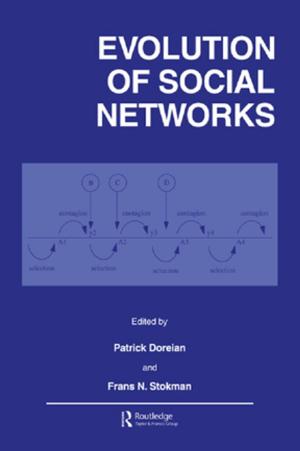Constructions of Neuroscience in Early Childhood Education
Nonfiction, Reference & Language, Education & Teaching| Author: | Michel Vandenbroeck, Jan De Vos, Wim Fias, Liselott Mariett Olsson, Helen Penn, Dave Wastell, Sue White | ISBN: | 9781315445106 |
| Publisher: | Taylor and Francis | Publication: | July 14, 2017 |
| Imprint: | Routledge | Language: | English |
| Author: | Michel Vandenbroeck, Jan De Vos, Wim Fias, Liselott Mariett Olsson, Helen Penn, Dave Wastell, Sue White |
| ISBN: | 9781315445106 |
| Publisher: | Taylor and Francis |
| Publication: | July 14, 2017 |
| Imprint: | Routledge |
| Language: | English |
This book explores and critiques topical debates in educational sciences, philosophy, social work and cognitive neuroscience. It examines constructions of children, parents and the welfare state in relation to neurosciences and its vocabulary of brain architecture, critical periods and toxic stress.
The authors provide insight into the historical roots of the relationship between early childhood education policy and practice and sciences. The book argues that the neurophilia in the early childhood education field is not a coincidence, but relates to larger societal changes that value economic arguments over ethical, social and eminently pedagogical concerns. It affects the image of the child, the parent and the very meaning of education in general.
Constructions of Neuroscience in Early Childhood Education discusses what neuroscience has to offer, what its limitations are, and how to gain a more nuanced view on its benefits and challenges. The debates in this book will support early childhood researchers, students and practitioners in the field to make their own judgements about new evolutions in the scientific discourse.
This book explores and critiques topical debates in educational sciences, philosophy, social work and cognitive neuroscience. It examines constructions of children, parents and the welfare state in relation to neurosciences and its vocabulary of brain architecture, critical periods and toxic stress.
The authors provide insight into the historical roots of the relationship between early childhood education policy and practice and sciences. The book argues that the neurophilia in the early childhood education field is not a coincidence, but relates to larger societal changes that value economic arguments over ethical, social and eminently pedagogical concerns. It affects the image of the child, the parent and the very meaning of education in general.
Constructions of Neuroscience in Early Childhood Education discusses what neuroscience has to offer, what its limitations are, and how to gain a more nuanced view on its benefits and challenges. The debates in this book will support early childhood researchers, students and practitioners in the field to make their own judgements about new evolutions in the scientific discourse.















